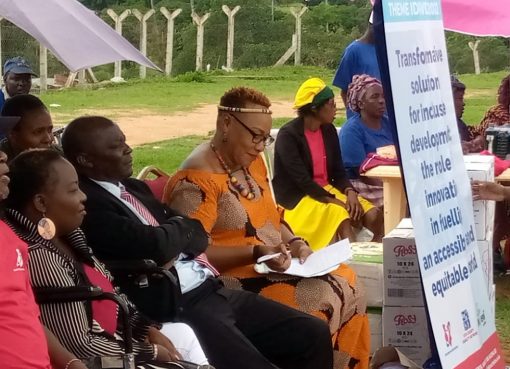A blood shortage has hit Mwingi level 4 hospital forcing the hospital administration to refer patients needing blood transfusion to Kitui County Hospital, the facility’s medical superintendent Dr. Evan Mumo has said.
Speaking on phone to KNA in Mwingi on Monday, Dr Mumo said that the hospital has run out of tested blood following the long holidays of the school calendar.
“We normally source our blood from secondary and college students. The long December holiday break has affected the supply of blood to our facility,” said the medic.
Dr. Mumo said that the facility mounted a blood donation campaign in Mwingi last week adding that the blood was taken to Nairobi for screening before it can be sent back for transfusion to patients in need.
“This campaign therefore will attempt to mitigate the current scenario in an effort to offer our clients more secure treatment and most importantly to save lives,” he said.
The Medical Superintendent lamented that it will be difficult to respond to emergencies adding that he hopes the situation will normalise in the course of the week.
At the facility, Kanyali Mwaniki, who had brought a patient in need of surgical operation was making plans to transfer the patient to Kitui County Referral Hospital.
The Kenya National Blood Transfusion Service (KNBTS) collected a total of 186,000 units of blood in 2018 against a national requirement of 400,000 units.
This under performance could be attributed to the poor blood donation culture among adult blood donors and in some instances gross lack of awareness among potential blood donors.
According to KNBTS, blood donation apathy among adult donors has resulted into low collections while the same adult donors are the highest recipients of blood.
Dr. Mumo said that there is great need to create a culture of voluntary blood donation through constant engagement with the adult donors through information, education and communication.
A survey conducted by KNBTS indicates that two of every three units of blood are transfused to mothers and children.
“It is unfortunate that Kenya has one of the highest maternal mortality rates worldwide at 488 maternal deaths per 100,000 live births, which translates to about 20 women dying every day from child birth related complications,” read part of its report.
Dr. Mumo observed that the leading cause of maternal mortality is bleeding just before or after childbirth or due to a miscarriage, induced abortions and other pregnancy related complications such as tubal pregnancy.
Commenting on the DusitD2 terror attack last week, Dr Mumo said that the demand for blood and blood product is on the rise owing to the sporadic terror attacks, road traffic injuries, cancer cases and anemia occasioned by Malaria and other medical conditions.
By Yobesh Onwong’a
Thursday, December 26, 2024




